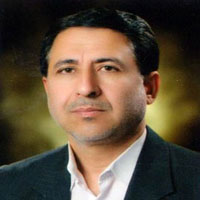The role of knowledge management in human resource management of Armed Forces universities (Case study: Human capital of a military university)
The rapid movement of scientific and technological developments, especially in the fields of defense and security, has highlighted the need to strengthen organizations and military centers through the implementation of knowledge management processes in the armed forces, more than ever. The importance of this issue is doubled when knowledge management plays a role in the processes related to the most important component of power in the country's armed forces, namely human capital, if this vital element is manifested in the form of teacher and trainer, as the basic pillar of the education and the main factor of education, transfer of experiences, growth and excellence of human capital, the need for knowledge management in training centers of the Armed Forces will become a vital issue, the present study was conducted to investigate the role of knowledge management in the management of human capital of Armed Forces universities in one of the military universities of the country. The data of this study were confirmed by a standard questionnaire With of obtained by Cronbach's alpha method of 0.92 and also a researcher-made questionnaire with a validity of 0.84 and Cronbach's alpha coefficient of 0.89. It was collected and analyzed from all university professors using structural equation modeling based on partial least squares and SPSS and SmartPLS software. The results indicate a positive and significant effect of knowledge management on human capital management of Armed Forces universities, in which the component of knowledge externalization has affected more than other components of human capital management.
-
A study of the effect of organizational justice and task visibility on teachers’ perception of colleagues’ social loafing
Leili Sheikhi *, Ahmadreza Sheikhi, , Leila Moghtadaie
Journal of Applied Educational Leadership, -
Interpretative-Structural Analysis of Academic Misbehavior Indicators in Iranian Higher Education: A Mixed-Methods Study
Seyed Hedayat Davarpanah*, , Raziyeh Yousof Boroujerdi
Iranian Higher Education, -
Ultracombination of incompatibility factors of higher education curricula and employment and prioritization based on group hierarchical analysis
Seyed MohammadReza Hoseini Nejad Mahani *, Seyeed Ali Siadat
Journal of Career and Organization Consulting, -
Pathology of religious education in Student cultural and educational centers
Seyed MohammadReza Hoseini Nejad Mahani*
Iranian Bimonthly of Education Strategies In Medical Sciences,



